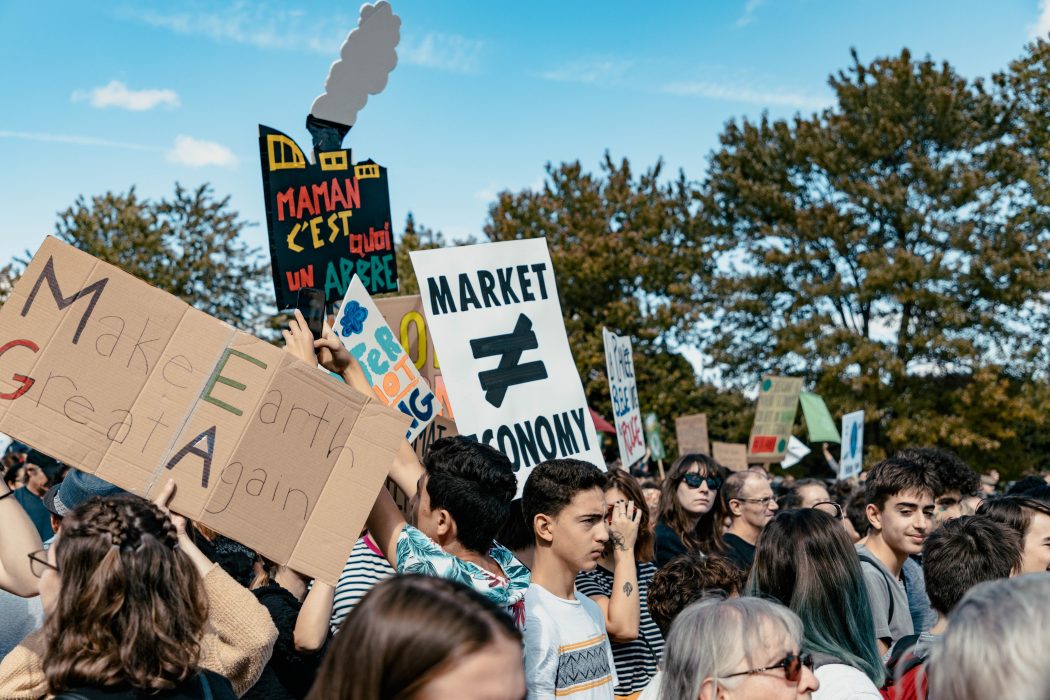In Montreal, 500,000 people recently marched for climate justice along with millions more across the globe. Make no mistake, millions are mobilizing in pursuit of climate specific goals precisely because they recognize the extremely adverse effects that climate change is going to have in a matter of years and the effects that it is already having. They understand that time is running out and that radical changes must be made now. They are sending the world the following message: change will only ever happen when all of us work together.
However, what I think millions of people do not consider is that the main body that must be held accountable and must fundamentally change is the economic system in which we all live. It is not necessarily one particular industry or another―although, of course, some are more environmentally adverse than others―but the entire way our economic situation is arranged.
Profit is the utmost driver of economic activity; it is the only mechanism by which our most economically important and consequential institutions are influenced and it has led to the climate crisis we find ourselves in. This may seem an obvious observation, and it is, but it is frequently left out of the discussion on climate change. Profit only increases when corporations produce and sell more and more, and this is why US consumer spending in real dollars has quadrupled since 1960.
275 million tonnes of plastic waste in 2010 didn’t just happen. It was the culmination of decades of plastic companies doing everything they possibly could to produce and sell as much plastic as humanly possible to increase their profit. We aren’t all pressured to replace our phones before they stop working just because; Apple and Samsung need to produce and sell as many phones as they can to increase their profits as much as possible. In pursuit of this goal, corporations spend hundreds of billions of dollars every year convincing us to consume more, and have been for decades.
The environmental atrocities of the fossil-fuel industry, the inaction of governments, and the travesties of factory-farming are commonly considered, but rarely do we discuss how corporations and their pursuit of profit underlie these situations. Commercial and industrial sectors together consumed 65% of the electrical energy in Canada in 2016; you have to ask, “How much of that electricity was used to produce more things we don’t need?”
The environmental atrocities of the fossil-fuel industry, the inaction of governments, and the travesties of factory-farming are commonly considered, but rarely do we discuss how corporations and their pursuit of profit underlie these situations
Should we be focusing on changing where we get all of our energy, or considering reducing our total energy use to begin with? We’re in this crisis because corporations have been capitalizing upon the gradual destruction of our planet, and they’ve used, and are still using, their economic power to effectively lobby the government for subsidy and inaction and to influence public opinion and behaviour.
Despite being in a climate crisis, like climate activist Greta Thunberg recently said, “all [world leaders] can talk about is money and fairy tales of eternal economic growth.” It’s true, and economic growth can only happen when more stuff is produced. The idea of eternal economic growth is, upon basic consideration, impossible. We only “need” all of this stuff insofar as it increases our GDP and profits for corporations.
Jermey Warner argued in The Telegraph that the true “fairy-tale” isn’t “market-driven approaches to climate change, but the idea that people will willingly coalesce around the top-down repression of advanced economy lifestyles that Thunberg demands.” I disagree strongly that eternal economic growth isn’t a myth, but, regrettably, agree that it will be very difficult for everybody to alter their consumption habits. Consumption as a lifestyle has been drilled into all of us forever, and it will be hard to fundamentally change. It is, after all, a habit.
Consumption as a lifestyle has been drilled into all of us forever, and it will be hard to fundamentally change
I know that there are certain industries that are particularly bad for the environment. For instance, 100 fossil fuel, natural gas, and coal companies are responsible for seventy percent of the world’s pollution, but I think that this statistic is meaningless without considering for what all of these energy sources get used. I think we must acknowledge that these industries are not hurting our environment in a vacuum. The whole of our “productive” economy and the absurdly unnecessary amount of goods it produces and that we consume depends upon consuming massive amounts of energy. Developments such as fast-fashion or an ever-changing catalogue of iPhone releases are extremely harmful to the environment and are the direct result of a desire for increased profit. It is our collective consumption that is fueling the climate crisis, and as a result, if we want to affect meaningful environmental change, our current economic system cannot remain.
I acknowledge, and indeed fully personally believe, that capitalism has made an unbelievable amount of progress for humanity. It has given us a standard of living unimaginable to those of even a few hundred years ago, but its time as a progressive force has run out. It has created a society in which drugs are researched and manufactured not for the betterment of society and health, but for profit, and in which the political process is so utterly corrupted by monied interests that an oft-cited Princeton study concluded: “[Ordinary citizens] have little or no independent influence on policy at all.”
I acknowledge, and indeed fully personally believe, that capitalism has made an unbelievable amount of progress for humanity. It has given us a standard of living unimaginable to those of even a few hundred years ago, but its time as a progressive force has run out
When the political process is so corrupted that ordinary voters have essentially no effect on the direction of the country, you have to ask yourself, “Do we really live in a democracy? How viable is this economic system, in both environmental and social respects?” The climate strike is a much-needed response to what we know the answers to these questions are. We need to see this movement through; we cannot go back to business-as-usual, as the political and economic powers are praying we do. We must continue to fight.








